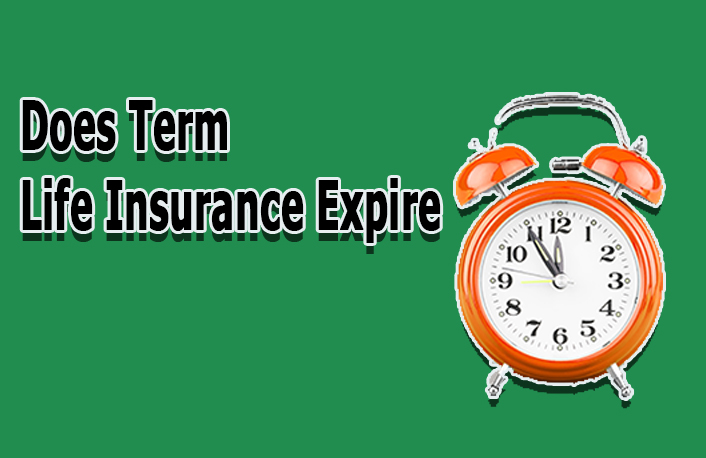Term life insurance is among one of the most famous types of insurance due to its cheap rate and extensive customization options that fit the policyholder’s requirements. However, many customers are curious about the term duration and what happens before and after their term life insurance expires before getting it. But most of it all does term life insurance expire?

Yes, term life insurance can expire after the policy ends on the end date. A fixed period known as the term length usually differs from 10 to 30 years and you get coverage if you can keep up with the premium payment.
How Does Term Life Insurance Expiration Work
Term life insurance has a fixed expiration date. Generally, policies are issued by providers for 10, 20, or 30 years but many provide longer duration. Unless you extend or convert your term insurance, it will expire at the end of the term. Occasionally, if you might be financially covered by increasing other assets, a life insurance policy can offer your family extra coverage for a long to come. When a term life insurance policy is about to expire, you have options, but you need to make sure the rest of your life insurance coverage is complete.
When Does Term Life Insurance Expire
The period your term life insurance would expire is determined by the duration you selected when you obtained the policy. If you are not certain about the precise date that your coverage might expire, you can examine your policy document. You can purchase Decreasing Life Insurance up until age 74 and Legal & General Life Insurance up until age 77.
However, the maximum age is 67 if you choose to add Critical Illness Coverage when you purchase your policy. It’s important to note that your policy for life insurance or decreasing life insurance must terminate by the time you turn 90. For further details on eligibility requirements, consult your policy booklet and policy summary.
What Happens When Your Term Life Insurance Expires
If the term insurance policy is about to expire, you can allow your coverage to expire and continue without life insurance. Some choose this alternative, especially if their kids are grown and self-sufficient financially and they have enough saved up to support their partner or spouse. However, if your family still requires life insurance for financial coverage, you have three main options:
Extend your existing term insurance
You can continue renewing your policy every year until you are 95 years old. To extend coverage and current death benefits without undergoing an underwriting process or another medical exam. The majority of term life policies have guaranteed renewability features. If you decide to extend, the insurance provider will adjust your premium. Although this might make sense for some, it might not be the best option for the majority of people.
Convert your term policy to a permanent policy
Many term life policies now offer a conversion option, allowing you to convert your term policy into a permanent one without requiring proof of insurability. Different insurance providers handle this process in different ways; some accept whole-life policies but not universal life. However, it is advised to begin the conversion procedure well in advance of the policy’s specified deadline.
Get a different life insurance policy
Consider the ways that your life has changed. Perhaps you don’t need as much life insurance because you have more savings. Or perhaps you require more because your family is larger. It’s possible that the policy you should have chosen 10, 15, or 20 years ago isn’t the best option for your needs now. This could be a chance to make that right.
Why Does Term Insurance Expire
Your term insurance might expire at the age of 50, 60, 70, 80, or other age in between depending on the term you select. By then, your children must have grown to be adults and become self-sufficient. You may have settled other significant debts with your mortgage. The coverage type that term life insurance provides is less necessary when one has fewer or smaller debts and financial responsibility. The goal of your term policy has been fulfilled.
Certain term policies extend coverage past the age of 80. However, with the amount these policies may cost relative to their payout, you might want to consider looking into other life insurance options. Furthermore, you can save the money instead of purchasing one of these policies.
Do I Still Need Term Life Insurance Once My Policy Expires
You should consider getting additional coverage after your current life insurance policy expires. You may not have had the same financial security or number of children when you first purchased the policy. After your policy expires, you might not need to keep paying for life insurance if your children are grown, your mortgage is paid off, and you have other assets.

